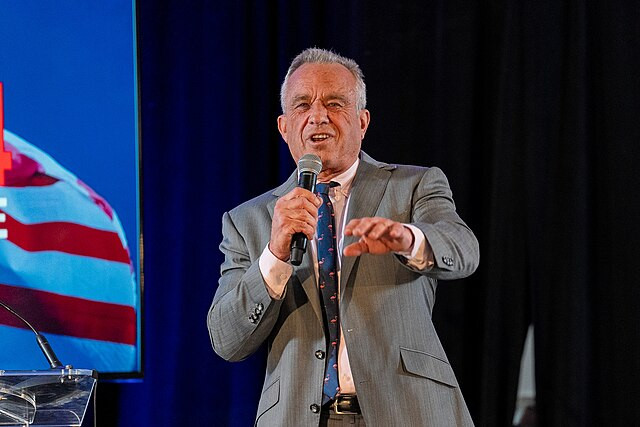Former President Donald Trump has enlisted former Democratic presidential candidate Robert F. Kennedy Jr. and ex-Representative Tulsi Gabbard to his transition team, signaling a strategic move to broaden his appeal across the political spectrum. This development marks a significant shift in the political landscape as Trump's campaign seeks to consolidate support from unexpected quarters.
Trump campaign senior advisor Brian Hughes confirmed the appointments, stating, "As President Trump's broad coalition of supporters and endorsers expands across partisan lines, we are proud that Robert F. Kennedy Jr. and Tulsi Gabbard have been added to the Trump/Vance Transition team." Hughes expressed enthusiasm about the new additions, emphasizing their roles in shaping a comprehensive approach to restoring "America's greatness."
Kennedy, who initially ran for president as a Democrat before transitioning to an independent candidacy, recently suspended his campaign and endorsed Trump. This endorsement is particularly noteworthy given Kennedy's background as a member of the storied Kennedy family, traditionally aligned with Democratic values. Kennedy's shift from critic to ally reflects a broader realignment in his political stance, culminating in his new role as an honorary co-chair of Trump's transition team.
In a statement, Kennedy framed his support within a context of national rejuvenation, articulating, "'Make America Great Again' recalls a nation brimming with vitality, with a can-do spirit, with hope and a belief in itself." He further described the envisioned America as a place of innovation and prosperity, aligned with the themes central to Trump's campaign.
Gabbard, a former Democratic representative from Hawaii and 2020 presidential candidate, also endorsed Trump this week and is set to assist with debate preparations. Known for her outspoken critiques of her former party and her transition to an independent status, Gabbard's endorsement is seen as a strategic asset for Trump, particularly in her capacity to prepare him for an upcoming debate with Vice President Kamala Harris.
In a recent interview, Gabbard declared, "I am proud to stand here before you today, whether you're a Democrat, a Republican, or an Independent. If you love our country, as I do, if you cherish peace and freedom as we do, I invite you to join me in doing all that we can to save our country and elect President Donald J. Trump." Her rhetoric underscores her commitment to Trump's vision and her belief in cross-partisan collaboration.
The inclusion of Kennedy and Gabbard on Trump's transition team underscores a deliberate effort to attract voters disenchanted with traditional party lines. The strategic appointments come as Trump's campaign continues to build a diverse coalition aimed at bolstering his 2024 bid.
The move also highlights the evolving dynamics within American politics, where traditional affiliations and long-held views are increasingly fluid. The partnership between Trump, Kennedy, and Gabbard reflects a broader trend of political realignment and coalition-building that defies conventional expectations.
Despite the high-profile nature of these endorsements, Kennedy's departure from the presidential race and Gabbard's shift in political affiliation might not significantly alter the electoral landscape. Kennedy's campaign was struggling with less than 5% in the polls before he suspended his run, and Gabbard's influence, while notable, may not dramatically shift the overall voter sentiment.
Trump's campaign, however, remains optimistic about the impact of these new alliances. By integrating voices from across the political spectrum, the former president aims to consolidate a coalition that bridges ideological divides and appeals to a broad base of voters.
The Trump transition team's announcement also features other prominent figures, including Trump's sons, Donald Jr. and Eric Trump, and his running mate, Sen. JD Vance of Ohio. This diverse lineup reflects Trump's strategy to leverage a wide array of supporters and advisors as he prepares for a potentially contentious election cycle.






